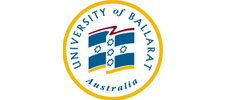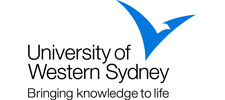U.K
Study in U.K.
A high degree of sophistication, a matchless charm, and above all, educational quality that's backed by centuries of tradition : the United Kingdom is just the right place to give your career that global edge.
In addition to the hallowed Oxford and Cambridge, UK has a large number of other universities which rank among the best in the world and offer a wide range of courses.
One major advantage of U.K. education is its one-year Masters Degree for almost all courses – saving you considerable time and money. Also, unlike those in other countries, most UK universities recognize the Indian education system of 3 year graduation.
Details on all this, and lots more, are for you to get on this site.
U.K. Education System
British Education has long attracted and welcomed high caliber students of different nationalities and backgrounds, and today builds on hundreds of years of experience in providing quality education to international students. To ensure that the quality is maintained, Britain has implemented unrivalled quality assurance and academic audit systems. The university departments are obliged to meet stringent standards by professional bodies. Standards are high not just in teaching but in other facilities as well : Libraries, computers, research equipment and living accommodation.
British higher and further education provides value for money by offering shorter, more intensive courses than are available in many other countries, thereby reducing living expenses and time spent away from home. Closely supervised study in an intellectually and culturally stimulating environment, together with an emphasis on student welfare and close contact between staff and students also ensures that individual students get maximum support and, as a result, pass rates are high and the drop-out rate for international students is very low.
Britain has long been a popular destination for Indian students. With more than 150 institutes of higher education to choose from, all equipped with extensive facilities, Britain is able to offer a broad spectrum of subjects from the highly academic to the purely practical in anything from architecture to zoology.
For more details of the costs of education and living in UK and comparisons of costs of education in UK with other countries, check out the Expenses & Fees for International Students section.
Details about various Qualifications offered by UK Colleges and Universities:
-
First Degree Courses in Arts and Sciences (Bachelor's degree) are normally of three or four years' duration and are largely taught courses, sometimes including the preparation of a short written thesis.
-
Sandwich Courses are where the coursework is accompanied by practical work. A student could either complete 2 years of college, then a year of commercial training before returning for a final year in college. Or, he/she could do a 4-year course with 3-6 months' training interspersed each year. The main advantage is that the student gets real experience while in the learning mode. Most universities offer this type of education.
-
Higher National Diploma (HND) is awarded by Vocational and Technical Educational Councils. They offer a 2-year course in a vocational subject like scientific and technical business subjects. Great emphasis is placed on work experience. It is often seen as the first step towards a degree course as the credits can be transferred.
-
Vocational Courses offer an opportunity to enter the university system slowly. Business and Technology Education Council (BTEC), General Vocational Qualifications (GNVQ), General Scottish Vocational Qualifications (GSVQ) offer recognized courses in a range of disciplines. Most students opt to take 1-2 years of, for example, BTEC courses before being transferred to a degree programme. BTEC national certificates/diplomas are usually accepted as an alternative to A-Levels.
-
Postgraduate study may take the form of an independent piece of research under supervision or a taught course, and leads to a variety of degrees and awards. The taught courses normally last for one or sometimes two years. Completion of a doctorate normally takes a minimum of three years. Many post-experience courses are also available, either leading to a qualification or providing a refresher course for graduates wishing to update or extend their knowledge. Occasional students are admitted by some institutions in limited numbers. They attend courses or undertake research, possibly for a period of one or two years. These courses do not lead to any formal qualification or 'credit' although certificate of satisfactory attendance may be given.
International Students Issues
This section discusses the various issues faced by international students applying to the U.K. for education. We discuss here eligibility criteria for UK colleges, accommodation, health insurance and rules for taking up employment while studying.
| Eligibility | ||||||||||||
|
||||||||||||
| Student Housing & Accomodation | ||||||||||||
|
Most international students take up independent accommodation close to the university along with other international students. This turns out to be cheaper and convenient. You need not worry about accommodation in UK. There are several options. You would get a good idea when you join the university. Of course, it always helps to be in touch with students already studying there. |
||||||||||||
| International Student Health Insurance | ||||||||||||
|
Britain has a subsidized health service which provides free health care and treatment for people who are resident in Britain. Students who are enrolled on a programme which will last for more than six months are also entitled to NHS treatment. If a doctor prescribes any medicines these are subsidized but there will be a charge made for each prescription - currently 5.75 UK Pounds per item. Dental treatment is subsidized by NHS but everyone has to pay something towards the cost of their treatment.
|
||||||||||||
| Part-Time Work & Jobs | ||||||||||||
|
|
||||||||||||
Student Visa
Visa applications have to be made on IM2A forms, which are available free of cost at the British Embassies. This form has to be filled up by the student and submitted to the embassy, along with the Visa application fee and the required documents as mentioned below.
Immigration Rules for Students
-
You must intend to study at a publicly funded university or college, a bonafide private institution or a fee-paying independent school.
-
You must be able to and intend to follow a full time degree course, or a weekday, full time course at a single institution involving at least 15 hours of organized, daytime study per week.
-
You must be able to pay for your course and the living expenses of your husband or wife and children (if they are with you) without working in UK or claiming public funds.
-
You must not intend to work in UK unless you are accepted for a course lasting longer than six months, when you may work part-time or during vacations.
-
You must intend to leave UK at the end of your studies.
Documents Required For a Student Visa
- A letter of acceptance on the course
This will be a letter from your institution confirming that a place has been offered to you and that the course is full-time as defined by the immigration law. The letter should state how long the course will last. Where your course is more advanced and specialized, the letter should also state what level of English is needed for the course (giving minimum test marks, if appropriate) and confirm that you satisfy this requirement.
- Evidence that you can pay the course fees and support yourself and your family, if applicable
Depending on your circumstances, this could include evidence of government sponsorship, a letter from a sponsor in UK confirming they can support you, together with evidence that they can do this, and/or your own bank statements. You should also provide a letter from your place of study stating the full cost of the course, what arrangements are acceptable for payment and whether you have already paid fees or a deposit.
Accommodation
Although the immigration rules do not require unaccompanied students to show that accommodation has been arranged, your place of study may have given you information about its availability, and you should bring this to the attention of the ECO. If your family is coming with you to the UK, you will need to show that there will adequate accommodation for them. If your place of study cannot confirm that family accommodation will be available, you may have to consider travelling to the UK alone and making arrangements for your family to join you when you have found somewhere to live.
The Interview
Interview is a part of your visa application process.
The interview is to give you the opportunity to clarify for the ECO certain parts of your application. The ECO will be aiming to satisfy him or herself that your study plans are genuine and workable.
The interview is a normal part of the process, but you may feel quite nervous before it and find it an uncomfortable experience. ECO's are trained professionals who will try to make the process as painless as possible, but the questions are necessarily very direct and personal.
You should prepare for such an interview carefull In particular :
- Be familiar with all your study plans; why you chose the particular institution and course; how the course will help your future career;
- Be clear about the cost of living and the course and your finances: do you have enough money to complete the course? Can you prove it?
- Be as clear as you can about your likely future career in your country: what are you going to do on your return.







 Study In
Study In